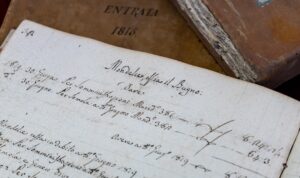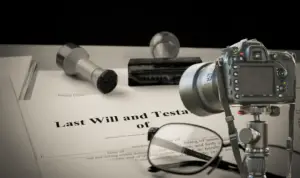What makes a valid case of fideicommissary substitution? In the study of law, you will encounter tons of foreign words that make your reading more complex. This may be the first time you will encounter the word fideicommissary substitution. To better understand this term, let us define first the word substitution.
In the context of substitution of heirs as provided for in Article 857 of the New Civil Code, Substitution is the appointment of another heir so that he may enter into the inheritance in default of the heir originally instituted.1
Substitution is one remedy provided by law to distribute a vacant portion in the estate. However, the designation of the substitute must be expressly provided by the testator in the will.2
Under substitutions in general, the testator may either (1) provide for the designation of another heir to whom the property shall pass in case the original heir should die before him/her, renounce the inheritance or be incapacitated to inherit, as in a simple substitution, or (2) leave his/her property to one person with the express charge that it be transmitted subsequently to another or others, as in a fideicommissary substitution.3
Fideicommissary Substitution
Let us now proceed with the definition of fideicommissary substitution. The New Civil Code of the Philippines defines fideicommissary substitution:
“A fideicommissary substitution by virtue of which the fiduciary or first heir instituted is entrusted with the obligation to preserve and to transmit to a second heir the whole or part of the inheritance, shall be valid and shall take effect, provided such substitution does not go beyond one degree from the heir originally instituted, and provided further, that the fiduciary or first heir and the second heir are living at the time of the death of the testator.”4
Please note that for the validity and effectivity of fideicommissary substitution, such substitution does not go beyond one degree from the heir originally substituted and provided further, that the fiduciary or first heir and the second heir are living at the time of death of the testator. If we would dissect the said provision, the conditions for a valid fideicommissary substitution are the following:
- That the institution does not go beyond one degree from the heir originally instituted;
- That the substitution be expressly made;
- That both the fiduciary and beneficiary be living at the time of the testator’s death;
- That it should be imposed on the free portion and not on the legitime.
Furthermore, the elements/requisites of fideicommissary substitution are the following:
- There must be a first heir or fiduciary;
- An absolute obligation is imposed upon the fiduciary to preserve and to transmit to a second heir the property at a given time;
- There is a second heir who must be one degree from the first heir;
- The first and second heir must both be living and qualified at the time of the death of the testator.
In contrast to the other aforementioned kind of substitution, the most important difference is that while in the simple or common substitution, where only one heir inherits or successively, in fideicommissary substitution, both heirs inherit simultaneously.5
What happens if the fideicommissary substitute predeceases the fiduciary heir?
What occurs if the fideicommissary substitute predeceases the fiduciary heir? The fideicommissary substitute’s rights descend to his own heirs if he outlives both the fiduciary and the testator but survives the latter.
When a fideicommissary substitution is deemed null, what happens? The institution of the heirs initially selected is nevertheless legitimate despite the fideicommissary substitution being invalid; the fideicommissary provision is merely regarded as unwritten.
Fideicommissary Substitution and Legitime
In essence, it defines an heir to an heir by providing a fiduciary as the first heir and a fideicommissary as the second heir. Since the law clearly forbids the burden that it may place upon the legitimate time of the compulsory heirs, as stipulated in Article 864, a fideicommissary substitution may only be imposed on the free disposal or free share of the estate of the testator.
“A fideicommissary substitution can never burden the legitime.”6
More importantly:
“Legitime is that part of the testator’s property which he cannot dispose of because the law has reserved it for certain heirs who are, therefore, called compulsory heirs.”7
Since the legitime is a portion of the testator’s property that he is unable to dispose of because the law has reserved it for specific heirs who are known as obligatory heirs, the act of choosing a fideicommissary substitute may not burden the legitime of the compulsory.
It is important to note that legitime is imposed by law so that the testator cannot deprive his heirs of their legitime. In addition, the testator cannot circumvent the law on legitime by imposing conditions, charges, burdens and substitutions upon the said legitime.
The rights of the compulsory heirs to their legitime are absolute, except when there is a cause for disinheritance. The fideicommissary substitution is only limited to the free portion. It is important to understand each element in order that there may be a valid fideicommissary substitution.
Fiduciary Heir and the Fideicommissary Substitute
As mentioned, there must be a first heir or called the fiduciary. When the testator dies, or if a condition is placed, then by the fulfilment of the suspensive condition specified in the will, the fiduciary inherits the property.
Second, the fiduciary is under an absolute duty to safeguard the property and pass it on to a second heir at a specific period.
One of the most important things to remember is that both the fiduciary heir and the fideicommissary substitute must be living at the time of the testator’s death.
Moreover, the nature of the right of the fiduciary heir is the same as that of a usufructuary.
Obligation to Preserve and to Transmit
In a case law, the instituted heir is in fact allowed that under the Codicil the testator provided that the instituted heir is allowed to alienate the property provided the negotiation is with the near descendants or the sister of the testatrix.
Thus, the Court found that the very important element of a fideicommissary substitution is lacking; the obligation clearly imposing upon the first heir the preservation of the property and its transmission to the second heir.” Without this obligation to preserve clearly imposed by the testator in his will, there is no fideicommissary substitution.8
However, the obligation to transmit the property as discussed by Mison, seeks to prevent the withdrawal of the property from circulation. If the testator prohibits the alienation for a definite period of time, it cannot exceed twenty years as provided in Article 870. Article 870 provides that the disposition of the testator declaring all or part of the estate inalienable for more than twenty years is void.
Therefore, what is declared void is the testamentary disposition prohibiting alienation after the twenty-year period. In the interim, the provision is not invalid. The will should be interpreted liberally and in favor of making the disposition operative.9
While the law prohibits the disposition or alienation of the property and requires the first heir to deliver to the second heir all that is subject to the substitution, the law allows the fiduciary such deductions as may arise from legitimate expenses, credits, and improvements.10
Meaning of One Degree
In Palacios vs. Ramirez, there is a second heir who must be one degree from the first heir. The term degree refers to degree of relationship.11 A fideicommissary substitution is therefore, void if the first heir is not related by first degree to the second heir.12
There are other views, however. Yet, we believe that Ramirez may be controlling on the interpretation of of “one degree”. For others, the word degree in Art. 863, Civil Code, on fideicommissary substitution, means llamiento or one transfer, one transmission, or one substitution.13
There may only be one transfer, according to the one-degree rule. While having a fideicommissary substitution in favor of one’s spouse and their children as a whole is acceptable, doing so in favor of the spouse and the first child, the second child, and so on is not.14
How may Fideicommissary Substitution exist?
In order that a Fideicommissary Substitution may exist or may be validly contained in a last will and testament, the same must be:
- Expressly stated in the Will as such
- Worded in such a manner as to explicitly infer therein the absolute obligation upon the first heir to preserve and to transmit the property to the fideicommissary
Consequently, the law only requires the conception of the first and second heirs, along with the fulfilment of the other legal conditions. It is thus because the first and second heirs’ rights become vested at the time of the testator’s death.
Case law provides that what amounts fideicommissary substitution requires three things.
- A first heir called primarily to the enjoyment of the estate.
- An obligation clearly imposed upon him to preserve and transmit to a third person the whole or a part of the estate.
- A second heir.
To these requisites, the decision of November 18, 1918 adds another, namely that the fideicommissarius be entitled to the estate from the time the testator dies, since he is to inherit from the latter and not from the fiduciary.15
Thus:
The manner of imposing a fideicomisaria is express. There are two ways of making an express imposition:
- by the use of the term fideicommissary, or
- by imposing upon the first heir the absolute obligation to preserve and to transmit to the second heir. (Article 867, par. 1)16
Obligations under Fideicommissary Substitution
The appointment or establishment of a fideicommissary is void if one or more of the prerequisites or restrictions for a legitimate fideicommissary are not met.
“Every fideicommissary substitution must be expressly made in order that it may be valid. The fiduciary shall be obliged to deliver the inheritance to the second heir, without other deductions than those which arise from legitimate expenses, credits and improvements, save in the case where the testator has provided otherwise.”17
What are the obligations of the fiduciary?
- To preserve the property
- To deliver the property to the second heir. If the substitution is silent as to the date when the delivery should be made, it should be made at the time of death of the fiduciary or first heir. If there is a period stated by the testator, then, the period should be followed
- To make an inventory of the property
What are the allowable deductions?
While the law prohibits the disposition or alienation of the property and requires the first heir to deliver to the second heir all that is subject to the substitution, the law allows the fiduciary such deductions as may arise from legitimate expenses, credits, and improvements.
Legitimate expenses do not refer to those which have been made for the acquisition and preservation of the inheritance. Improvements refer only to those which are necessary for the preservation of the property or useful expenses. However, the fiduciary is not liable for deterioration unless caused by his fault or neglect.18
- The general rule is that the fiduciary should deliver the property intact and undiminished to the fideicommissary heir upon the arrival of the period.
- The only deductions allowed, in the absence of a contrary provision in the will are:
- Legitimate expenses
- Credits
- Improvements
Coverage of legitimate expenses and improvements: necessary and useful expenses, but not ornamental expenses. Damage to, or deterioration of, property, if caused by a fortuitous event or ordinary wear and tear, the fiduciary heir is not liable. If caused by fiduciary’s fault or negligence, then, the fiduciary heir shall be responsible.
Effect of Nullity of Fideicommissary Substitution
The failure to meet the conditions necessary for a fideicommissary substitution to be valid, namely that the institution does not go beyond one degree from the heir originally instituted, that the substitution be made expressly19, that both the fiduciary and beneficiary be alive at the time of the testator’s death, that it should be imposed on the free portion and not on the legislated portion, may result in the nullification of a fideicommissary20.
- Article 857, Civil Code[↩]
- Mison. (2010). Wills and Succession Better Eplained. Rex Bookstore, Inc.[↩]
- Rabadilla vs. Court Appeals, GR No. 113725, June 29, 2000[↩]
- Article 863, Civil Code[↩]
- Paras, E. (2008). Civil Code of the Philippines Annotated. Rex Bookstore, Inc.[↩]
- Article 864, Civil Code[↩]
- Article 886, Civil Code[↩]
- Rabadilla vs. Court Appeals, GR No. 113725, June 29, 2000[↩]
- Rodriguez vs. Court of Appeals, G.R. No. L-28734, March 28, 1969[↩]
- Mison. (2010). Wills and Succession Better Eplained. Rex Bookstore, Inc[↩]
- Palacios vs. Ramirez, G.R. No. L-27952, February 18, 1982[↩]
- Rabadilla vs. Court Appeals, GR No. 113725, June 29, 2000[↩]
- Moreno. (1982). Philippine Law Dictionary. Rex Bookstore, Inc.[↩]
- Mison. (2010). Wills and Succession Better Eplained. Rex Bookstore, Inc.[↩]
- Perez vs. Garchitorena, G.R. No. L-31703, February 13, 1930[↩]
- Balane (2016) Jottings and Jurisprudence in Civil Law [Succession][↩]
- Article 865, Civil Code[↩]
- Mison. (2010). Wills and Succession Better Eplained. Rex Bookstore, Inc.[↩]
- Article 865, Civil Code[↩]
- Article 864, Civil Code[↩]




